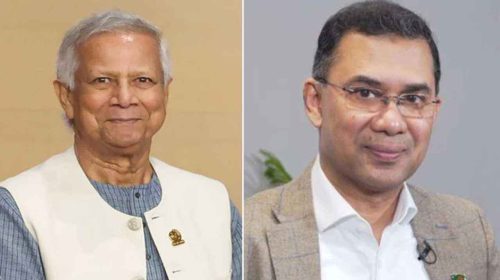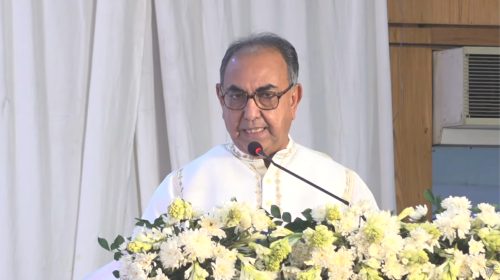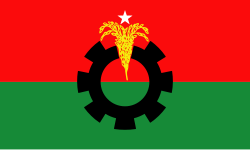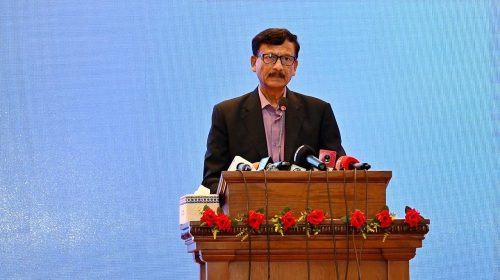In response to growing nationwide protests led by students, civil society, and various political groups, Bangladesh’s interim government has officially banned the country’s oldest political party, the Awami League.
The decision was made late Saturday night (May 10) during an emergency meeting of the Advisory Council, chaired by Chief Advisor Dr. Muhammad Yunus. Following the meeting, Law Advisor Dr. Asif Nazrul briefed the media, stating that the ban falls under the Anti-Terrorism Act, citing concerns over national security, public safety, and the protection of July Movement activists and witnesses involved in war crimes cases.
Dr. Nazrul also announced that an amendment to the International Crimes Tribunal Act was approved in the meeting. This amendment enables the tribunal to prosecute not only individuals but also political parties, their wings, and affiliated groups.
“Until the trial of the Awami League and its leadership is completed in the International Crimes Tribunal, all their activities—political, organizational, and online—will remain banned,” said the Law Advisor. An official government notice regarding the ban will be issued in the coming working days.
The Advisory Council also resolved to finalize and release the “July Declaration”—the manifesto of the ongoing protest movement—within the next 30 working days.
The demand to ban the Awami League intensified after May 8, when Hasnat Abdullah, the South Region Coordinator of the National Citizens’ Party (NCP), called for a sit-in protest at Shahbagh. The movement quickly gained momentum as other political parties and civil society organizations joined in.
On May 9, NCP leaders led a demonstration in front of the Chief Advisor’s residence, Jamuna, which was followed by a mass gathering after Friday prayers and a road blockade at Shahbagh.
Initially, the government released a statement acknowledging the demand and stated that the matter was being taken seriously. The statement cited allegations of authoritarianism and violent political activities by Awami League supporters, referencing a recent UN report as a factor in the decision-making process.
The government also confirmed that it had already banned Chhatra League, the student wing of the Awami League, under existing anti-terror laws.
Additionally, the statement addressed public outrage over former President Abdul Hamid’s recent departure from the country, assuring that legal action would be taken against those responsible.











